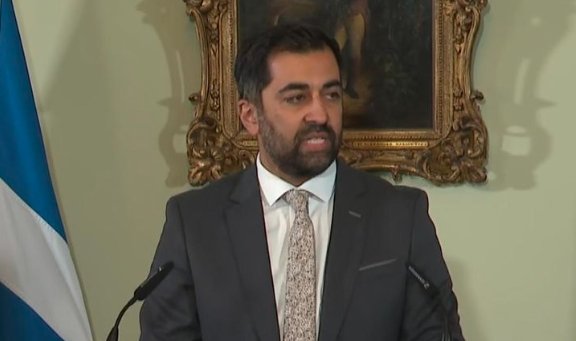In a surprising turn of events, Humza Yousaf, Scotland’s First Minister, is poised to resign amidst a whirlwind of political challenges and a looming vote of no confidence. His brief tenure has been marked by contentious policy decisions and a fractured relationship with coalition partners.
The Rise to Power
Humza Yousaf’s ascent to the role of First Minister was met with a wave of optimism. As a young, dynamic leader, his appointment was seen as a breath of fresh air in Scottish politics. Initially, his policies focused on social reform and pushing for Scottish independence, aligning with the SNP’s core objectives.
However, the political landscape quickly shifted. Yousaf faced his first major hurdle when he ended a power-sharing deal with the Scottish Greens. This decision not only sparked outrage among former allies but also signaled the beginning of a series of political miscalculations.

Coalition Collapse and Policy Backlash
The dissolution of the alliance with the Scottish Greens was a pivotal moment in Yousaf’s leadership. The move alienated a significant portion of his support base and led to a backlash over scrapped climate targets and gender policies. The Greens accused Yousaf of betraying future generations, a sentiment that resonated with many Scots.
Yousaf’s policies, particularly those related to gender recognition reforms, became a lightning rod for criticism. The public’s discontent was palpable, and opposition parties seized the opportunity to challenge his leadership.
The Final Straw: No Confidence and Resignation
The culmination of Yousaf’s political woes came with the announcement of two no-confidence votes. With the SNP lacking a majority and the defection of key members to rival parties, his position became untenable.
In an emotional address, Yousaf acknowledged the insurmountable odds he faced. His resignation marks the end of a tumultuous chapter in Scottish politics and opens the door for new leadership and direction.


















